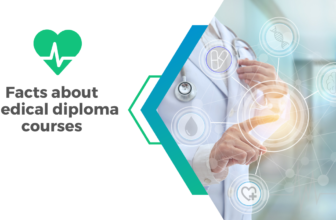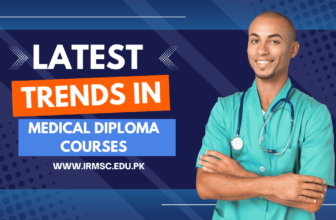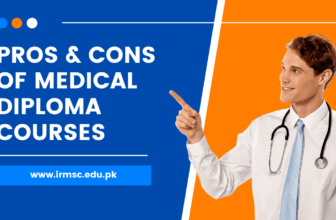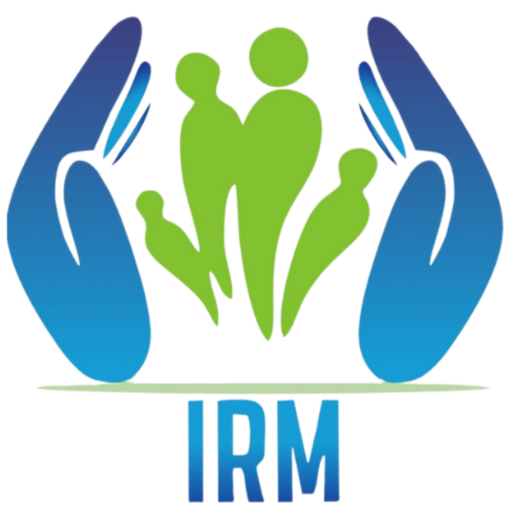
Ever heard of the term ‘medical diploma‘ and wondered if it’s worth pursuing? Like many fields, there are numerous myths surrounding medical diploma courses. Let’s dissect some of these misconceptions and find out the truth.
There are many Misconceptions About Medical Diploma Courses due to less information or misleading propaganda.

The Value of a Diploma
What is a Medical Diploma?
In the simplest terms, a medical diploma is a qualification that provides foundational knowledge and skills in various medical fields. Unlike a full-fledged medical degree, it is shorter in duration but can be incredibly valuable.
Benefits of Pursuing a Medical Diploma
There are many benefits of Medical diplomas because these medical courses offer a quick route into the healthcare sector. They can open doors to various positions, enhance career progression, and sometimes act as a stepping stone to advanced degrees.
Common Misconceptions About Medical Diploma Courses
Myth: Medical Diplomas Are Not Real Degrees
The Truth
Medical diplomas are accredited courses that provide in-depth training in specialized medical fields. They’re not mere certificates but hold significant value.
Myth: Medical Diploma Courses Are Easy
The Truth
These courses are challenging and rigorous, requiring a solid foundation in medical sciences. Far from being a walk in the park, they demand dedication and hard work.
Myth: Only Failed Medical Students Opt for Diplomas
The Truth
Many students and professionals choose diplomas to specialize in a specific field or to get hands-on training that complements their existing qualifications.
Myth: Acceptance and Credibility of Medical Diplomas are Limited
The Truth
The acceptance and credibility of medical diplomas are influenced by multiple factors including the institution’s reputation, the country’s standards for medical education, and international accords or agreements.
- Varied Accreditation Standards
- Licensing Examinations
- Continuing Medical Education (CME)
Myth: “It’s an Easy Shortcut”
The Truth
One prevailing myth is that medical diplomas are the ‘easy way out’. While they might be shorter in duration, the coursework is still rigorous, demanding, and comprehensive.
Myth: “It’s Not Respected by Professionals”
Another common misconception is the lack of professional respect. Many assume that without a full degree, one cannot gain proper recognition. But remember, respect comes with skill and knowledge, not just paper qualifications.
Myth: “You Can’t Earn a Good Income”
The Truth
Financial prospects are often a concern. Many believe that only a full-fledged medical degree can bring in a decent paycheck. However, numerous diploma holders have thriving careers and excellent earning potentials.
Myth: “Diploma Holders Can’t Specialize”
The Truth
Some believe that with a diploma, one can’t specialize or advance. This isn’t true. While it might be a more circuitous route, specialization is still a possibility.
Other Misconceptions:
All Foreign Diplomas are Inferior:
It’s a myth that all foreign medical degrees are inferior to those from Western countries. Many countries have rigorous medical programs that produce skilled practitioners.
Once Licensed, Always Competent:
Holding a medical license doesn’t always mean the doctor’s knowledge is current. Medical practitioners must pursue continuous learning.
Impacts on Immigrant Doctors:
Many immigrant doctors face challenges in getting their qualifications recognized in their new country. Even if their education and training are top-notch, they might have to go through further training or examinations to meet local requirements.
This phenomenon sometimes results in “brain waste” where highly trained individuals end up working in jobs that don’t utilize their full qualifications.
Ensuring Quality:
International accords, like the World Federation for Medical Education (WFME) recognition, are helping to standardize the quality of medical education worldwide. Institutions like ECFMG (Educational Commission for Foreign Medical Graduates) in the U.S. validate the quality of foreign medical diplomas, ensuring that foreign graduates meet certain standards.
While the acceptance and credibility of medical diplomas can vary based on a multitude of factors, it’s important not to generalize. Each diploma’s acceptance should be assessed based on the merit of the institution, the quality of education provided, and the individual’s ongoing commitment to the medical profession. It’s essential to support systems and international agreements that promote the recognition of qualified medical professionals worldwide.
Why Medical Diploma Courses Matter
Medical diploma courses offer a rich blend of theory and practical learning. They equip you with the necessary skills to fill specific roles within the healthcare sector, sometimes roles that are currently underrepresented.
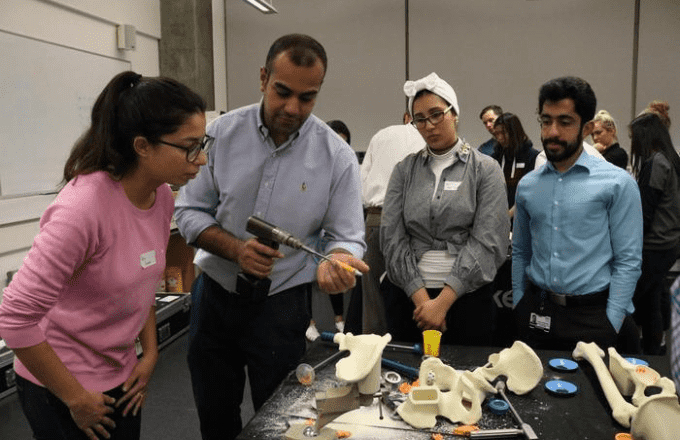
Who Should Consider Medical Diploma Courses

If you’re passionate about healthcare but aren’t looking for a long educational commitment, or you want to specialize quickly, a medical diploma could be right for you.
Conclusion
Medical diploma courses are far from the misconceived notions many hold. They offer valuable insights, a faster route into the medical field, and can be just as rewarding as a full degree. So, the next time you hear these misconceptions, remember, things aren’t always as they seem.
Frequently Asked Questions (FAQ’s)
Are medical diplomas recognized globally?
Yes, many are globally recognized, especially those from accredited institutions.
What’s the average duration of Myths About Medical Diploma Courses ?
This varies but typically ranges from one to three years.
Are Medical Diploma Courses Inferior to Degrees?
Medical diploma courses provide specialized training and can be a valuable alternative to full degrees for specific medical roles.
Do Medical Diplomas Offer Limited Career Opportunities?
False. Medical diplomas prepare you for focused roles like medical assisting or radiography, opening doors to diverse healthcare careers.
Do Medical Diplomas Only Cover Basic Medical Topics?
No, medical diploma programs cover in-depth subjects relevant to chosen specialties, equipping students with practical expertise

